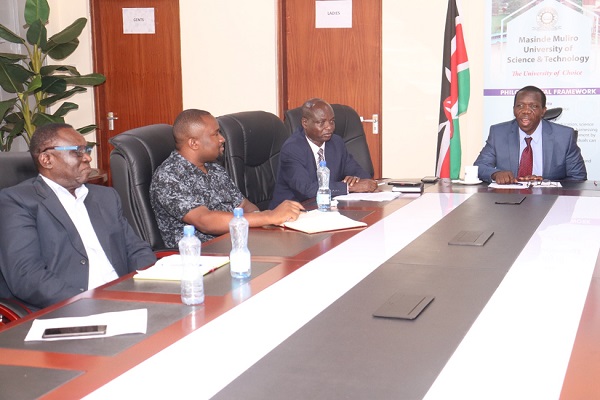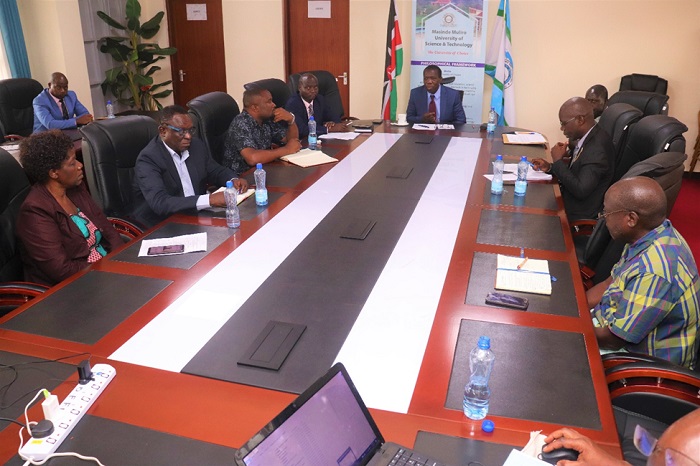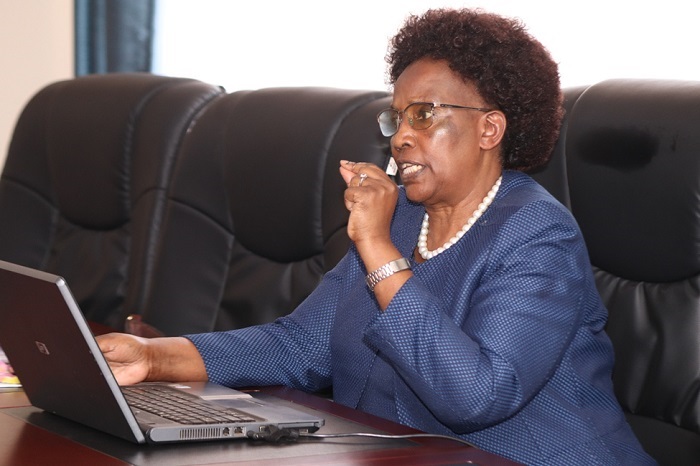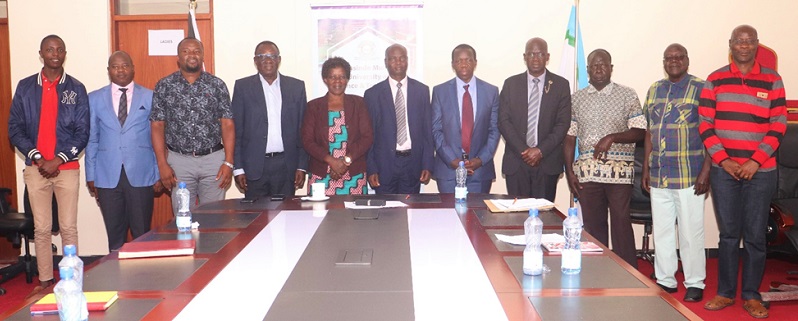“I would like to thank the organizers of this timely event and our Chief Guest, Ms. Fauziya Abdi Ali for honoring our invite. Banditry is a serious threat to internal security, rule of law and democratic governance, which are so vital for political multiplicity in Kenya. It is the understanding of these new tendencies and their relative importance, amidst challenges of globalization, which is central to any research on violence, conflict and conflict resolution in Kenya and beyond,” he added.

Vice Chancellor, Prof. Solomon Shibairo, addressing the participants during the webinar.
The Chief Guest, Ms. Fauziya Abdi Ali, who is the President and Founder of Women in International Security in the Horn of Africa, pointed out that banditry is a social issue and a security concern.
“We can manage banditry through social security. Bandits are terrorists and should be treated as such. The current wave of insecurity is fueled by poverty which has made national security a more complex issue for the government. I advocate for the engagement of women in peace and security issues,” said Ms. Abdi.

Vice Chancellor together with other participants following presentations.
This event attracted various key presentations from notable scholars. One of the scholars who was also a guest speaker at the Banditry webinar, Prof. Josephine Ngaira, pointed out that banditry is perceived as a state security threat. It contradicts vital national interests and distorts national economic development plans.
“Banditry in Kenya has increased the incidents of forced migration, food insecurity, cattle rustling, destruction of property, health challenges, displacements, humanitarian crisis and death. Kenya does not need better leaders to mitigate the banditry activities. It only requires empowerment of institutions to carry out their mandate independently,” stated Prof. Ngaira.

Prof. Josephine Ngaira making her presentation.
Presenting on ‘The Science of Banditry in Kenya- Ecological/ Environment Factors and Human Factors’, Rev. Dr. Elijah Odhiambo and Dr. Edward Mugalavai from MMUST stated that some of the environmental factors influencing banditry include; desertification, drought, climate change, cattle rustling, insurgency and population growth.
Other key discussants of the webinar were; Prof. Edmond Were- Kisii University who presented on ‘Impact of Bandit Activities on Security- Conventional and Human Perspective,’ and Dr. Michael Aliyabei- Kenya Red Cross Society (KRCS), ‘Strategies in Combating Banditry and Policy Implications.’
Not all violent problems require violent solutions. Banditry is not a problem that will be solved through the barrel of a gun. Our judiciary should be ready for justice. This is not the time for corruption and fraud. It is not the time for receiving a bribe to pervert justice. It is the time to face facts and interpret the laws in the right way to defeat banditry.
By Linet Owuor and Verna Awuor
Photos by Wilberforce Shiundu





